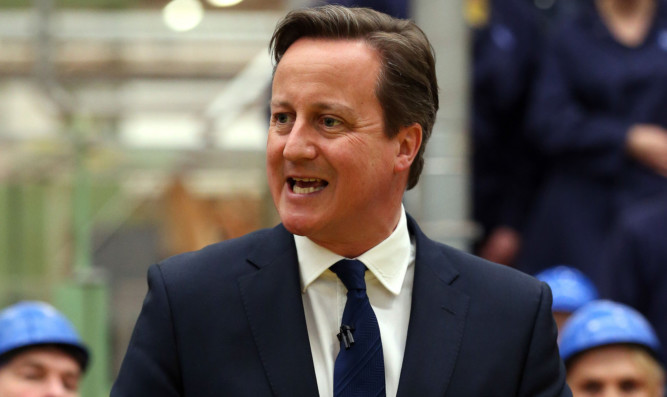
David Cameron’s hopes of renegotiating the UK’s relationship with the European Union received a boost as Germany’s finance minister said there was a “huge interest” in Britain remaining part of the 28-member group.
Wolfgang Schauble has invited Chancellor George Osborne to Berlin to discuss the UK Government’s plans for changes ahead of an in/out referendum on membership of the EU promised by the end of 2017.
He suggested British demands for reform could be considered along with changes to the way the eurozone single currency area is governed, and although he acknowledged the prospect of treaty change by Mr Cameron’s deadline was unlikely, he indicated there could be agreements to take that step at a later date.
The comments by the senior German minister came ahead of Mr Cameron holding his first face-to-face talks with fellow European leaders since his election victory.
The formal agenda of the meeting in Latvian capital Riga is dominated by relations with former Soviet nations on the EU’s eastern borders, but Downing Street made clear that Mr Cameron will use discussions in the margins of the conference to press the UK’s case for change.
Mr Schauble told the Wall Street Journal he wanted talks with Mr Osborne on how to combine Britain’s requests and Germany’s own wish list of changes to the EU’s treaties.
“We have talked about him coming to Berlin so that we can think together about how we can combine the British position with the urgent need for a strengthened governance of the eurozone,” he said.
“Since 2010, we’ve been more successful at stabilising the eurozone than many critics expected. But the structure of this currency union will stay fragile as long as its governance isn’t substantially reinforced. Maybe there is a chance to combine both goals.”
Mr Schauble said the process of rewriting the fundamental treaties might not be achievable by 2017, but “we will try to move in this direction, possibly through agreements that would later be incorporated into treaty changes”.
“There is a big margin of manoeuvre,” he added.
“We have a huge interest in the UK remaining a strong and engaged member of the European Union.”
The Chancellor used a speech to the Confederation of British Industry (CBI) to set out some “hard truths” about Europe.
He said the Government “want Britain to be in Europe, but not run by Europe” and “that is what we’ll be fighting for”.
He said the problem of making the single currency work is “inevitably drawing its members toward ever-closer integration”.
“We don’t want to be part of that integration,” he stressed.
“The challenge for us is to ensure that while this happens we protect the single market, and make sure the EU continues to work in the interests of all 28 member states, including Britain.”
He warned the continent was “sleepwalking towards a future where it has priced itself out of the global economy, with its rules and regulations, financial services legislation and red tape”.
Aerospace giant Airbus became the latest business to warn it would reconsider investing in the UK were Britain to leave the EU.
Paul Kahn, president of the plane maker’s UK operation, said he thought it was “vital” that firms took a view on a possible “Brexit” following a promised in/out referendum.
Mr Kahn told the BBC: “I believe that it is vital for a company such as Airbus to come out and make a stand in favour of Britain remaining in the European Union.
“If, after an exit from the European Union, economic conditions in Britain were less favourable for business than in other parts of Europe, or beyond, would Airbus reconsider future investment in the United Kingdom? Yes, absolutely.”
But he said he backed the Prime Minister’s pledge to reform the union.
“I welcome the UK Government’s intentions to deliver positive and hoped-for reforms – which would create a leaner and more efficient EU,” he said.
Airbus employs nearly 17,000 people in the UK, including 4,000 in Filton, near Bristol, and 6,000 at its wing-manufacturing plant in Broughton, North Wales.
Ukip’s trade spokesman and MEP William Dartmouth dismissed the firm’s warning, saying: “Airbus in the recent past has flatly contradicted allegations of stopping investment if Britain leaves the EU.
“In January 2014, Airbus stated that the reason they stay in the UK is because it is a ‘competitive place to do business’.”

Enjoy the convenience of having The Sunday Post delivered as a digital ePaper straight to your smartphone, tablet or computer.
Subscribe for only £5.49 a month and enjoy all the benefits of the printed paper as a digital replica.
Subscribe